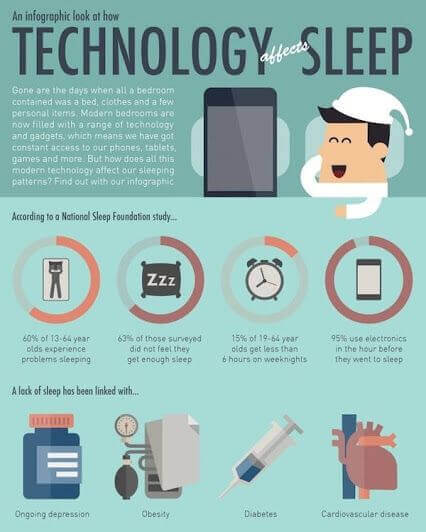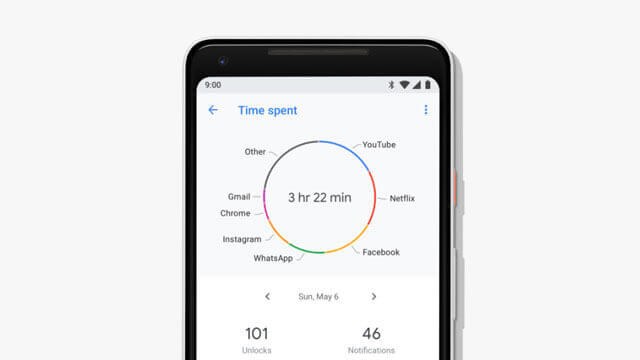Digital addiction is a relatively new phenomenon in America, but it’s quickly growing in severity and prevalence. In fact, it’s become so common that there are several new documentaries and studies which address digital dependence.
One such piece of media is ” Screenagers,” a movie that dives into how a child’s development is impacted by technology. In addition, the film covers some of the challenges digital world parents face today.
As screens have become more common, it’s easy for kids, and adults, to lose control of their digital habits and behaviors; Dr. Delaney Ruston, documentary filmmaker and primary care physician, explores this concept in “Screenagers.”
Dr. Ruston turns the camera on herself to show the real conversations that families often have about technology. As a physician, Dr. Ruston explores the scientific effects digital addiction has on kids. As a mom, she shows her attempt to connect and care for her son and daughter who would rather spend their time on social media or playing video games.
After conducting countless hours of research, Dr. Ruston knows that kids are drawn to devices in a way parents can’t fully understand. On a physiological level, screens influence the minds of children in different ways than their older counterparts.
Like Dr. Ruston, you want to help your kids and grandkids battle screen time and digital addiction as they head back to school. Luckily, experts have discovered a few tried-and-true tricks that will help you keep your young loved ones safe in the digital age:
1) Explain Why
Your children don’t need, or probably want to know, the complex scientific reasons technology is bad for them. However, if your child understands that there are simple reasons behind the rules, he or she will be more likely to remember and adhere to your boundaries.
For example, if you want to limit screen use after dinner you can say, “We don’t use screens before bed because they disrupt our sleep, and our bodies need lots of sleep to stay strong and healthy.”
Once your child or grandchild exhibits behavior that’s consistent with your rules, offer a lot of praise. Every time he or she stops looking at a digital device after dinner, thank them for their effort and successful compliance.
Furthermore, each time he or she chooses an activity, like reading or playing a sport outside, instead of looking at a screen, make sure you reinforce the positive behavior.
2) Create a Schedule
Young kids benefit from routines.
Knowing this, you can create a system for scheduling screen time. Some families decide that their children have 30 minutes of screen time daily to use whenever they have extra time. Other families may set a specific day where their kids are allowed to play on various devices or watch TV.
Regardless of the exact schedule you create, make sure you’re consistent. Many studies have shown there’s a strong correlation between inconsistency in parenting and family conflict. Once the rules are set, there’s no loopholes or negotiating.
To make this easier for kids to understand, it’s helpful to include them in the scheduling process. If you both agree on the rules, negotiating will become less appealing because your child has already agreed to the boundaries.
3) Discuss Your Child’s Objectives
Kelly Holmes, the author of ” Happy You, Happy Family” believes it’s important to talk about your child’s digital media and what he or she is using it to accomplish.
One day, Kelly found that her daughter’s tablet was loaded with nearly a hundred applications. Kelly called her daughter, Abby, to her side to talk about the iPad’s apps.
Kelly would point to an application and ask her daughter if it was fun or not. Whenever Abby said an application wasn’t fun, Kelly would delete it from the device. Next, Kelly made two folders on the tablet. One was titled “Brain Food” and the other “Junk Food.”
Once the folders were created, Kelly said to her daughter, “You can tell me which folder you think each app should go in, and we’ll talk about it if I have a different opinion.” After everything was sorted accordingly, Kelly explained why it was important to limit the time Abby spent on “Junk Food” apps.
Although your child might not like it at first, you can sit down with him or her and talk about why they are using a variety of applications. Afterward, you can devise a plan for how your child can interact with his or her preferred media.
4) Use a Tracking App Or Device
Creating rules is important, but ensuring your child or grandchild follows them is challenging. Fortunately, there’s many timer apps and even devices that can help your loved one stick to an agreed upon plan.
One such tracker is the ” Parental Control & Kid Tracker.” This application helps you schedule screen time, block inappropriate content and monitor your child’s activity.
“ScreenLimit” is another option that enables you to manage the time your loved one spends on specific applications; the ability to control specific programs is important if you have an older child who needs to have more access to educational applications and less access to social media and other sites.
As far as devices go, the Android 9 has “digital wellbeing” tools that can help you combat digital addiction and device usage.
5) The Occasional Binge Is OK
Indulging in an activity in excess, otherwise known with binging, is common for people of all ages. Some examples of this are overeating on Thanksgiving or overindulging in drinks when you’re reunited with old friends. Although overindulging isn’t healthy when done more than a few times a year, it is a normal part of life when it’s done in moderation.
Sometimes, your kids or grandkids are going to consume more media than you’d like. Whether he or she watches several movies in one day or spends the majority of a weekend playing a new video game, at some point or another, they’ll binge on media.
Whenever this happens, realize it’s OK, and then try to move on.
Beating yourself up about the overindulgence will probably cause more harm than good in the long run. Instead, acknowledge what happened, talk about how it made everyone feel and then recommit to your prior media schedule/plan.
6) Consider Going Cold Turkey
Similarly to how overindulgence is acceptable from time to time, the opposite side of the spectrum can be beneficial, too. Whether or not your family is addicted to screen time, taking a full day, or longer, away from digital media can be helpful in more ways than one.
For at least one day, avoid all your technological entertainment devices. If you do this in conjunction with your entire family, you might choose to lock all of your phones, tablets and other smaller devices away and unplug your televisions and radios.
Before you start, though, it’s a good idea to come up with a few activities your family can do together during the digital fast and media detox. If you have potential activity options in mind, you’ll have fun things to do together when you start missing technology.
7) Remember That Things Can Change
Each year, your child or grandchild enters a new grade.
As he or she advances through school, they take on more responsibility and increasingly complex subjects; during this process, they often need to rely more heavily on technology to succeed.
Although it’s true you want to stick to rules once they are set, it doesn’t mean that you can’t redefine your rules when needed. While your loved one transitions into a new year at school, you can take the time to sit down with him or her and learn about how their technological needs and desires might be changing.
Then, you can come up with new rules that feel good to both parties.
8) Staying Current
You want to trust your child or grandchild to be honest and frank about his or her media usage, but they probably won’t tell you everything they’re doing online and for how long.
To stay in the know, you can read helpful blogs and seek support from a technical computer company. Not only can a computer support company help you with your devices, but they can also help you understand the applications your kids or grandkids might be using.
Similar Goals
Doctors and parents agree long periods of too much screen time can do more harm than good. Over the summer, as kids are playing with friends and attending various summer camps, it’s easy to forget about how hard it can be to keep them away from media.
However, as school ramps back up, it quickly becomes clear that digital addiction is a real, scary challenge facing the youth in America.
With time and the tricks above, you can help your child or grandchild transition back to school in a healthy way. Although he or she will need some screen time occasionally, you can help them understand why screen time should be limited and teach them how to practice self-control when it comes to their exposure to technology.




